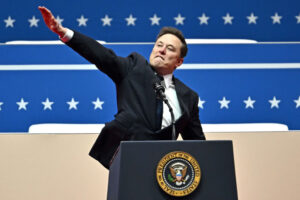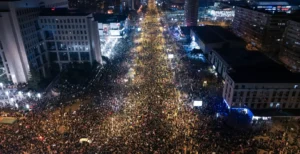Date: January 7, 2025
Time: 22:00
Key Findings
Pro-Russian Policies Strain Slovakia’s Alliances
Slovakia’s Prime Minister Robert Fico has adopted a pro-Russian stance, halting military aid to Ukraine and criticizing Western sanctions against Russia.
Controversial NGO Legislation
Fico’s government has introduced laws requiring NGOs receiving over €5,000 in foreign funding to register as “foreign agents,” raising concerns over civil liberties and the suppression of dissent.
Geopolitical Tensions Escalate
Ukraine’s cancellation of a gas transit deal has led Fico to accuse Kyiv of sabotaging Slovakia’s energy security, further complicating regional relations.
Introduction
Slovakia’s Prime Minister Robert Fico has drawn international attention for his pro-Russian policies, which have created friction with Western allies and sparked protests at home. From halting military aid to Ukraine to introducing controversial NGO legislation, Fico’s approach marks a stark departure from Slovakia’s previously pro-European stance.
Background and Context
Fico’s policies reflect his administration’s alignment with Moscow, evident in his vocal criticism of sanctions against Russia and the cessation of Slovakian support for Ukraine’s military efforts. At the same time, new laws targeting foreign-funded NGOs have raised alarms among civil rights advocates, who view them as tools to stifle dissent and curb democratic freedoms.
Details of Current Activities
Domestic Protests: Thousands of Slovaks have protested in Bratislava, voicing opposition to Fico’s pro-Russian policies and demanding greater alignment with Western democratic values.
Energy Disputes: The cancellation of a gas transit agreement between Ukraine and Slovakia has deepened tensions. Fico has accused Ukraine of sabotaging Slovakia’s economy, further straining regional ties.
International Reactions: Western allies have expressed concern over Slovakia’s pivot towards Russia, noting the potential consequences for NATO and EU cohesion.
Analysis and Implications
Fico’s policies risk isolating Slovakia from its European and NATO allies while emboldening Russia’s influence in the region. Domestically, the controversial NGO law could erode trust in democratic institutions, while protests highlight growing dissatisfaction with his administration.
Conclusion
As Slovakia navigates its geopolitical stance under Prime Minister Fico, the country faces growing domestic and international challenges. Balancing relations between Moscow, Kyiv, and Western allies will require careful diplomacy to avoid further isolation and unrest.
Sources
Reuters – Slovakia says gas supply meeting with Ukraine, European Commission cancelled
Reuters – Slovakia will discuss retaliation after Ukraine’s gas transit ‘sabotage’
AP News – Assassination attempt raises concerns over populist leadership in Slovakia

